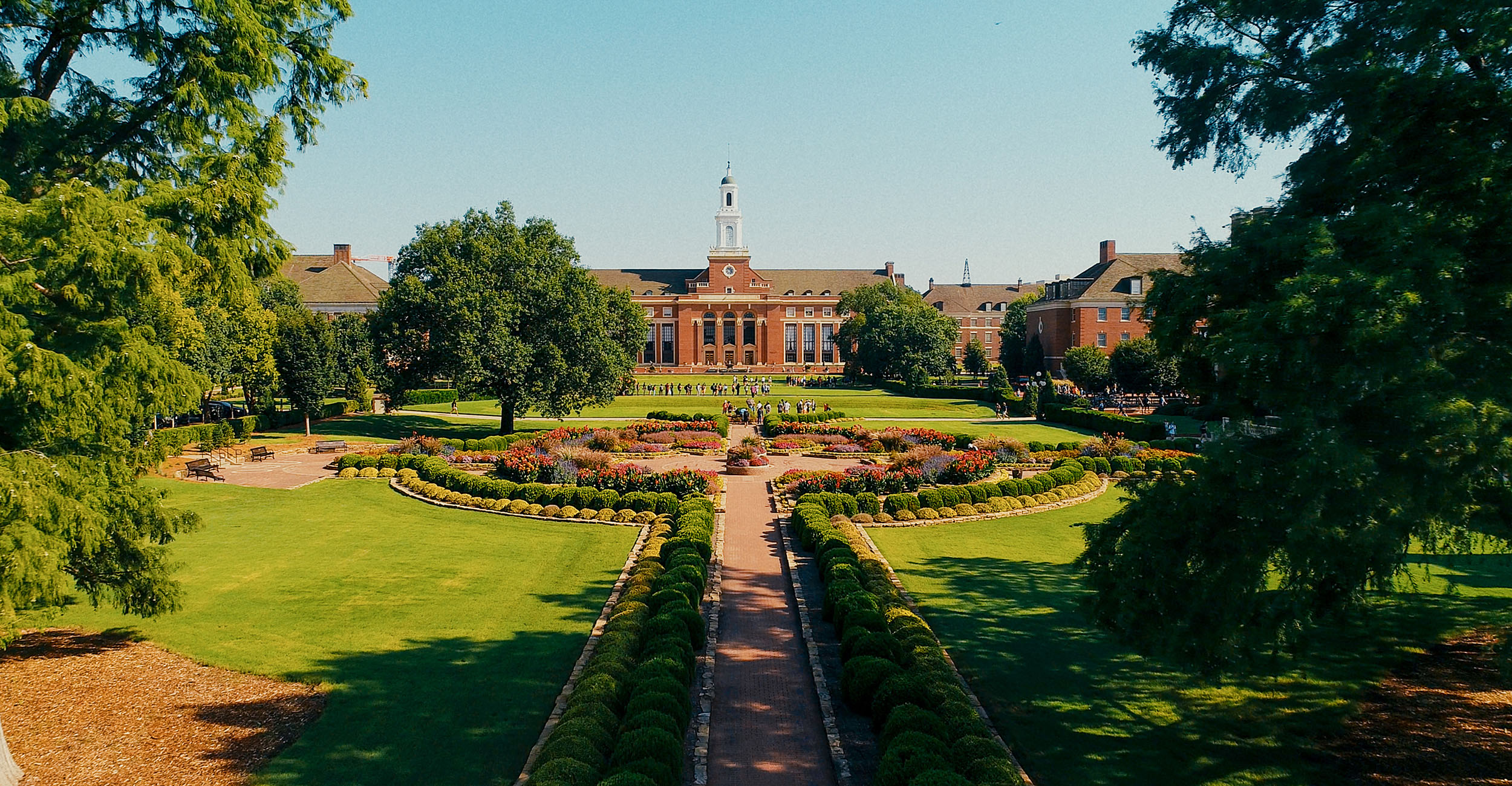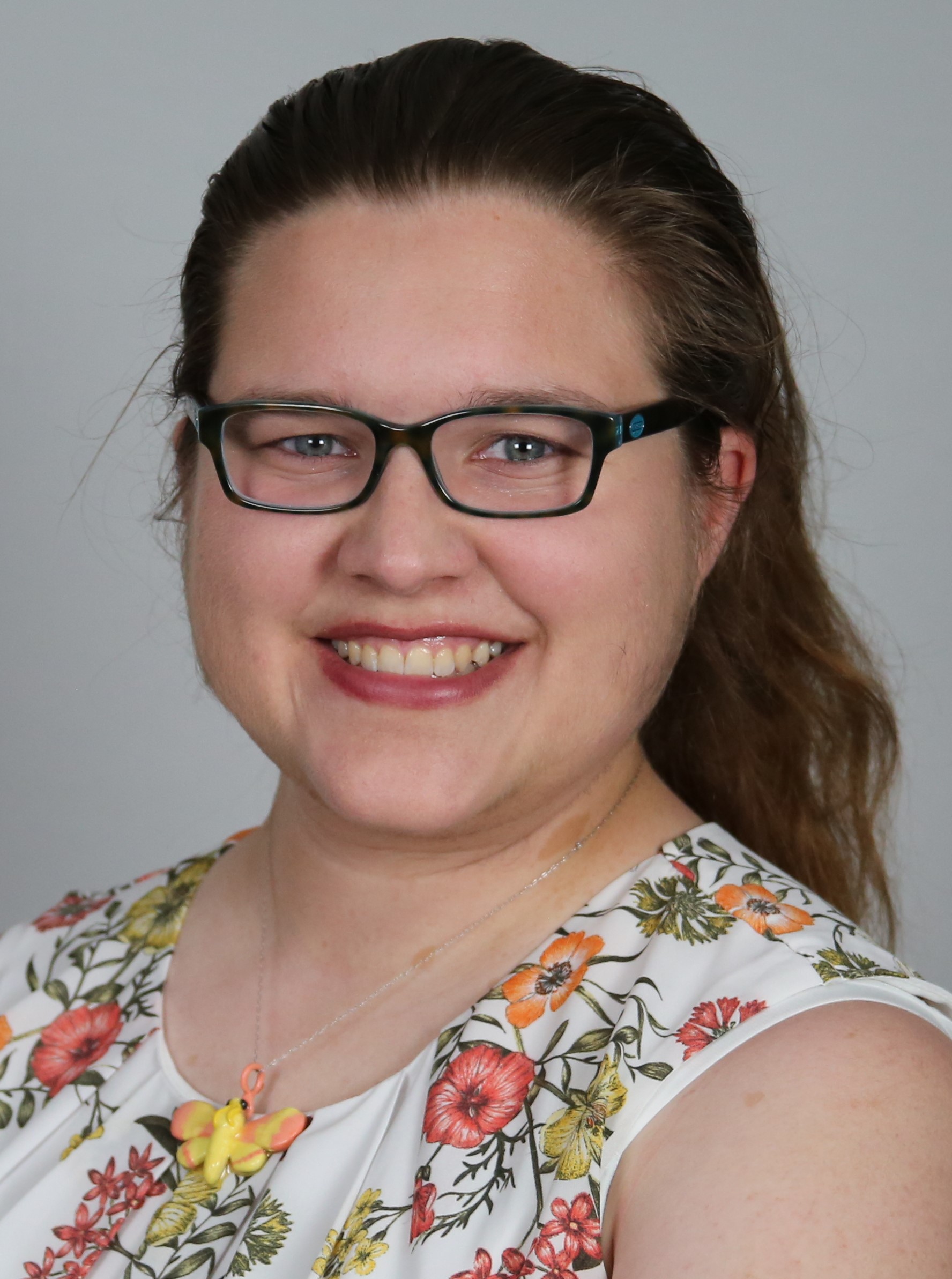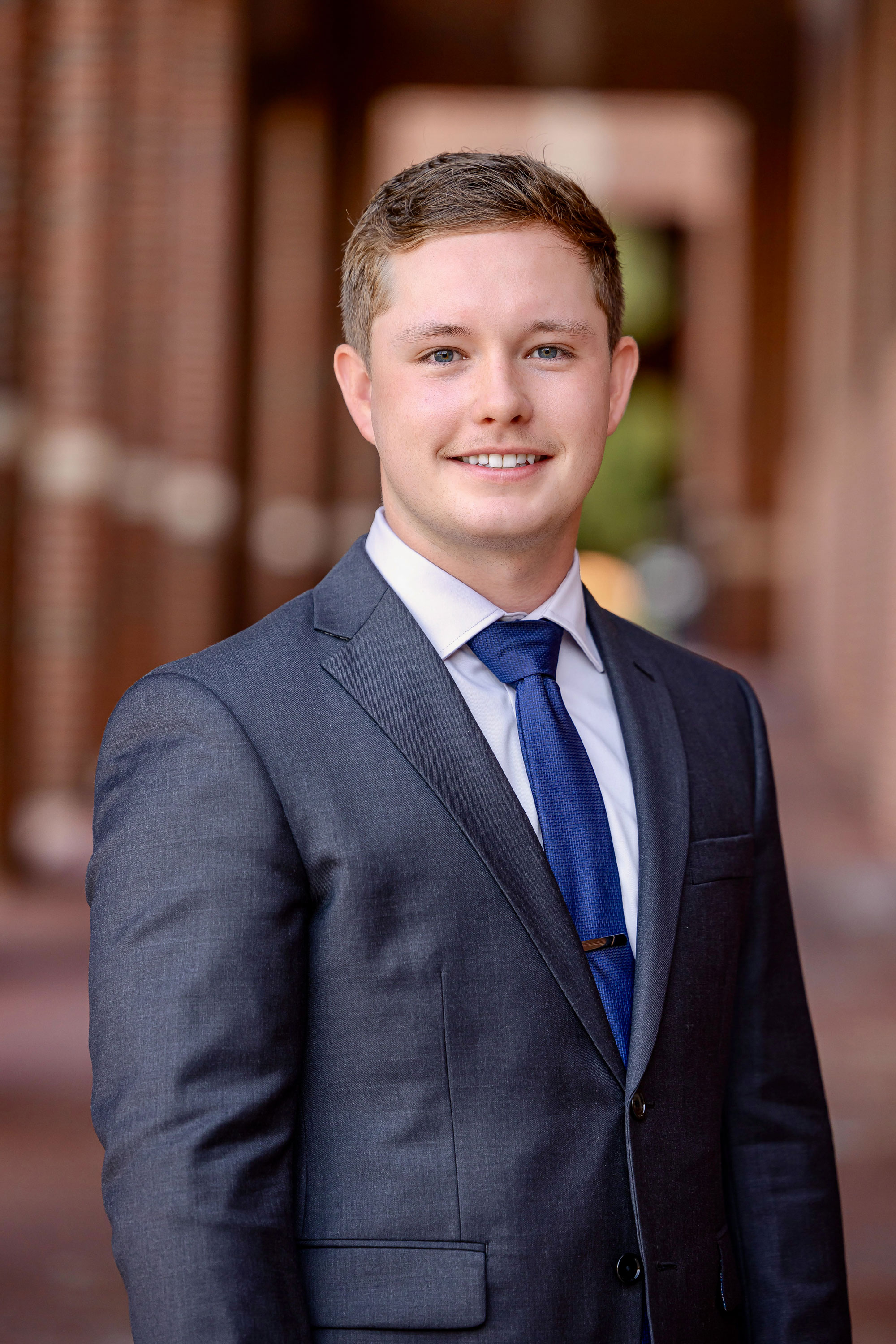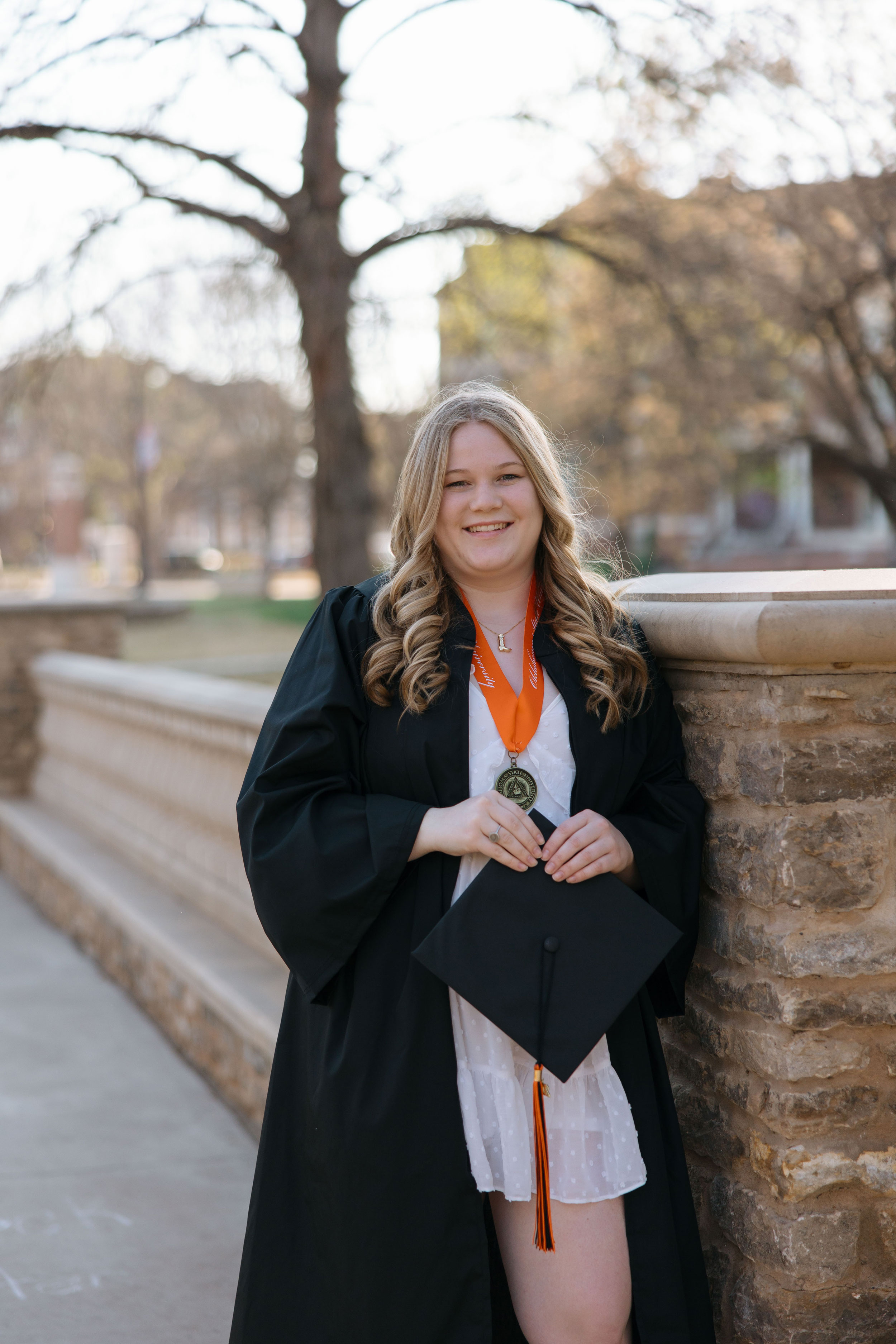
3 OSU students earn NSF Graduate Research Fellowships
Thursday, April 17, 2025
Media Contact: Sydney Trainor | Communications and Media Relations Specialist | 405-744-9782 | sydney.trainor@okstate.edu
Three Oklahoma State University undergraduate students were awarded National Science Foundation Graduate Research Fellowships.
The five-year fellowship provides each student with three years of financial support totaling $159,000 to continue their scientific pursuits in graduate school.
Dr. Rachael Eaton, College of Arts and Sciences program director for research engagement, said this is the most prestigious graduate fellowship that typically sees more than 13,000 applicants.
“For some people, it’s a game changer, career maker type thing, really,” Eaton said. “It’s like, you get this on your resume, and it opens doors.”
Last year, NSF-GRFP awarded a record number of 2,500 fellowships. This year, these highly competitive national fellowships were awarded to 1,000 students — 50% less than in previous years.
OSU also had three students receive honorable mention honors; Gabriel Hessler, a current OSU graduate student in Landscape Ecology; Sara Cochrane, a current OSU graduate student in Organismal Biology; and Isabella Cowan, studying Biological Anthropology, who earned her undergraduate degree at OSU.
NSF-GRFP applicants are evaluated based on classification as undergraduates, first-year graduate and second-year graduate students.
“Undergraduate students compete against undergrad students, first-year grad students compete against first-year grad students and second-year grad students compete against second year,” Eaton said.
Eaton encourages all students to pursue these opportunities and leave nothing on the table.
“My motivation is mainly trying to get as many students access to as many opportunities and resources as possible and then helping them see that if you get the award, it’s great, but it’s still good exercise if you don’t,” Eaton said.
OSU does a couple of things to try to prep students for competitive NSF-GRFP applications and then they have scheduled times for students to come in, write and then bounce ideas off everyone.
“The students who got the award this year have participated in professional development or kind of like training prep session,” Eaton said. “That’s good to see a connection between who got the award and the support that we’re trying to offer.”
Elizabeth Carlson

Carlson graduated from OSU in spring 2024 with an undergraduate degree in entomology from the Ferguson College of Agriculture.
When she saw the results were available, she was filled with excitement and disbelief.
“I first learned about this grant at my internship at the American Museum of Natural History in New York City and I hoped to get it,” Carlson said. “It is extremely competitive and when I applied last year, I was rejected, so I was very surprised I won it this year.”
This grant will allow Carlson to pursue both a master’s and a doctorate by covering her tuition and providing a stipend, enabling her to focus on her research without the need for a part-time job; as a passionate advocate for entomology education, she plans to develop entomology curriculum and conduct research in both STEM education and entomology collections.
“There were many things that helped me build a competitive application, such as working really hard from my first semester as a freshman to my final term as a senior,” Carlson said. “I also attended an NSF workshop on campus and went to the writing service in the Student Union.”
Treyton Dorrell

Dorrell is a senior studying mechanical and aerospace engineering in the College of Engineering, Architecture and Technology.
“Honestly, I wasn’t fully expecting it,” Dorrell said. “I saw the email that my status had changed and clicked through, thinking I’d just get closure — but then I saw that I had received it, and I was kind of stunned. It was a really joyful moment. I think what hit me right away was how much of a team effort this journey has been.”
Dorrell’s research focuses on rocket propulsion. He’s been involved in research on 3D-printed hybrid rocket fuel grains, detonation engines and, more recently, solid rocket motors.
As he continues his education in graduate school, he wants to explore laser diagnostics, which are used to analyze combustion behavior in propulsion systems.
“This fellowship gives me the freedom to pursue my Ph.D. with stable funding for three years, which is huge,” Dorrell said. “In grad school, funding often determines which projects you can join, so having a fellowship like this opens up opportunities to work on cutting-edge propulsion research without being tied to specific funding constraints. It’s not just financial support — it’s flexibility, freedom and the chance to focus deeply on research that I care about.”
Emma England

England is a senior studying microbiology in the College of Arts and Sciences with a research focus on studying the gut microbiome of animals.
“The first emotion I felt after finding out I won was complete shock,” England said. “I received the email while eating breakfast before class, and when I opened it, my jaw dropped. This award is extremely competitive, and I had approached the application mainly as an exercise in scientific communication because I knew the chances of winning were very low. After the shock wore off, I was — and still am — extremely excited.”
This grant will allow England to pursue graduate studies with less concern about financial needs and allow her to focus on preparing for a career in science.
“Growing up, I actually hated science,” England said. “Throughout elementary and middle school, it was my least favorite subject in school. My love of science did not begin until high school after my grandmother passed away from stage IV brain cancer.
“I now realize that studying science was something I used as an outlet for my grief, but since then, it has grown into a true passion for learning and seeking answers to scientific questions. I hope someday to be able to work with brain cancer and develop a treatment, cure, or even a way to prevent it because I know personally how devastating a brain cancer diagnosis is.”
For those considering applying for this opportunity in the future, England has some advice.
“Besides having other people read the application, my biggest advice would be to start early,” England said. “I spent a lot of time just sitting in Starbucks thinking about my life, what led me to start research, and the goals I wanted to focus my career on. Being able to be introspective about your life, your story, and what drives you is critical to creating a competitive application.”
